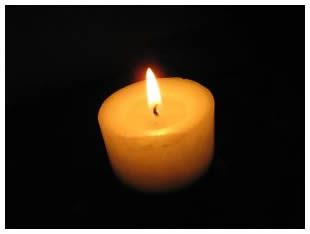 Some of us are really lucky and have parents that we love pretty much equally. They may have vastly different personal qualities, but overall, we would be hard pressed to say which one we prefer. Alternatively, we may have one parent who we dearly love, and the other one is disliked for a number of reasons.
Some of us are really lucky and have parents that we love pretty much equally. They may have vastly different personal qualities, but overall, we would be hard pressed to say which one we prefer. Alternatively, we may have one parent who we dearly love, and the other one is disliked for a number of reasons.
So when it comes to losing one of these parents in death, we would assume that it would be far harder to lose the parent we adore. After all, hasn’t the other one been a thorn in our side for as long as we can remember? Wouldn’t his or her death hardly bother us at all? We might not even have seen them for years. How could the news of their death really affect us?
Well, perhaps it’s not quite that simple. The dynamics of parent-child relationships coupled with the death process can make for some pretty confusing and volatile emotions. Let’s have a look at what happens when a treasured parent dies as opposed to the parent we love to hate.
When we have had a basically happy relationship with one parent and they die, we are temporarily devastated. If we have successfully moved past the parent-child phase of our relationship and entered into a more equally-based bond, our parent has, over time, become our friend and ally. When that parent dies, we feel a tremendous sense of loss. When something happens in our lives, we reach for the phone to tell our parent, only to come to the realization that they are gone. The sense of loss hits hard.
Yet, it is precisely that close bond that we once shared with that loved parent that enables us to come to grips with the loss more quickly and move on to forge healthy productive lives. Once the intense grieving process has passed, the positive aspects of the relationship begin to shine through the dark clouds of sadness. When we achieve a longstanding goal, we hear their voices in our minds again, encouraging us just as they did when we were younger. Similarly, when we encounter difficulties in our lives, we also hear those same words of encouragement that they always spoke to us. It’s like we carry a recording of all the positive things they once said to us and they are still there, even in death, encouraging and supporting us.
In a way, it’s like the relationship hasn’t ended. All those good times you shared with the loved parent are still there in your head, readily accessible in good times and bad. Accepting their death becomes easier because, in a way, they have never really left us.
In coming blogs, we will look at why it can be difficult to attain peace after the death of a parent with whom you shared an antagonistic relationship.
Contact Beth McHugh for further information or assistance regarding this issue.

